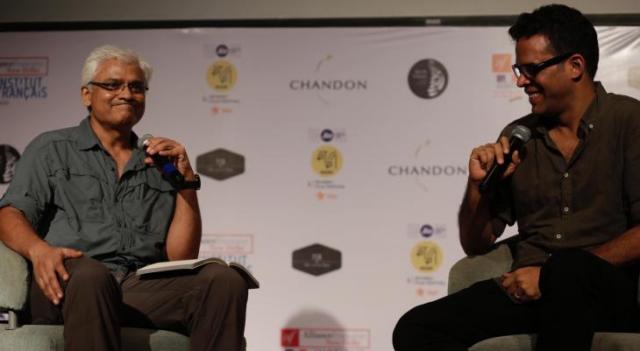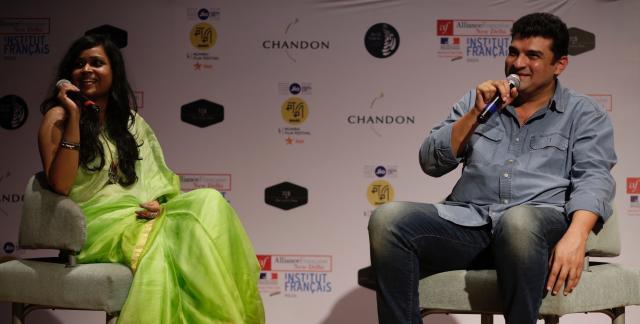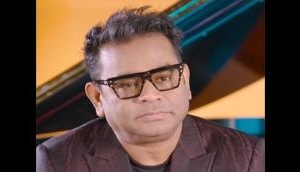MAMI's Word to Screen Market could raise the standard of Indian cinema

On 27 July, the auditorium of the Alliance Francaise, Delhi, played host to Word to Screen Publishers Bootcamp. Part of the Mumbai Academy of the Moving Image (MAMI) Word to Screen Market initiative, the event featured a series of talks aimed at one thing – the art of pitching books to video content creators.
From producer Siddharth Roy Kapur and director Vikramaditya Motwane, to publishers like Arpita Das (Yoda Press) and Anish Chandy (Juggernaut), the event put the potential of book-to-screen adaptations firmly into perspective. If content creators are to keep pace with audience demand, literature is a treasure trove of content just waiting to be explored.
As Smriti Kiran, Creative Director of MAMI, tells us, it is this vision that originally led to the inception of the Word to Screen Market.
Word to Screen
“Everyone in the film industry talks about a lack of stories. I have had conversations with directors and producers who have said that they wished they had ready-made material that they could then develop,” says Smriti. “So we - Anupama Chopra, Kiran Rao, and myself - were wondering why adaptations from books and short stories, so common in the west, were not happening in India.”
The Word to Screen Market was their response. “We're based in Mumbai, the epicentre of cinema in the country. You have all the big players here. So we thought it would be easier for us to get them into the room, and for the publishing industry to travel here. Taking the film industry somewhere else is much harder,” Smriti says.
_74850.jpg)
To realise this idea, the MAMI team brought Yoda Press' Arpita Das, a longtime associate of Smriti's, on board. “We felt Arpita would be the right person for this because her sensibility traverses many worlds – she's very passionate about both books and cinema. So we felt she was the right person to helm this, and she came on board and managed the inaugural edition last year,” she says. Unwittingly underlining this, Arpita Das goes whizzing past us, half guiding, half dragging, a publisher toward Siddharth Roy Kapur.
“What is fascinating,” Kiran continues, “is that both the worlds have responded really positively to each other when they didn't have to. After all, nothing has happened for the last 15 years.”
The book-to-screen pipeline
While the idea for the market obviously does make sense, it does raise a very obvious question: Why has the coming together of books and cinema not happened already? Smriti ponders this question for a while before offering her opinion.
“I can safely say that people are not putting enough money into this, maybe because they don't see value,” she says, elaborating, “Adaptations are a process of extreme diligence. It requires people to be sitting in offices, with a salary, having the liberty to just discover content from across India and the world. This doesn't happen.”
To make her point, Smriti goes on to contrast the Indian film industry to their counterparts in the west. “People overseas are discovering Indian content. Netflix picked up Sacred Games! While Phantom Films are the ones producing and making it, it is Netflix who picked it up” she points out.
“Look at Vikas Swarup's Slumdog Millionaire, which was picked up by Danny Boyle. There is natural interest overseas because they know how to do this. The Indian film industry needs to learn from this.”
Smriti also highlights another problem with the situation in India – stealing. “The Indian industry has not felt the need before to take permission from anybody, even if they're being inspired by books,” she says ruefully. “Therefore the adaptation pipeline has never been established, and this is what we are trying to do.”
Conversely, Smriti also acknowledges that the publishing side has a lot of work to do. “We looked at what sales agents do when we go to Berlin or Cannes, and realised our publishers need to have the same approach,” she says. “You need to have a striking image for the book, a write-up on the author, a synopsis of the book. Also, people need to get out of the habit of saying you can't explain a book in five sentences. If you can't explain it in five sentences, you cannot make a movie.”
Just the beginning
Despite these shortcomings, the outcome of the first Word to Screen Market was remarkably positive. 50 manuscripts were long-listed for last year's event, while 20 manuscripts made the shortlist. The shortlisted manuscripts were pitched to content creators.
Telling us about last year's event, Smriti highlights one of the success stories. “One person had come to the event with a video pitch, and was surprised to find that many Zee, Dharma, and other big companies were interested,” she remembers. “His project is currently in development.” But while that may seem like a battle won, Smriti is quick to remind us that this is far from the case.

“See, pitching a book is only one part of the process. Then the optioning rights might happen, because people are just interested in the germ of the idea. After that it goes into development, so there is a whole cycle that these things need to go through,” she says, before adding optimistically, “What we've done last year, more than getting deals, is to open the floodgates. And the response we received was tremendous.”
After a positive start, MAMI is refusing to rest on their laurels. Instead, as Smriti points out, they've reflected on their lessons from the first event, and are putting those learnings into action.
“The bootcamp is a result of the learnings from the first edition of the market,” she says. “We realised that we needed to do more than just provide a platform. We needed to actually talk to people about how to better use this platform. We need to sit down with them and tell them how they can be more effective, like using videos, for example.”
Never losing sight that both publishing and cinema need to be brought together, Word to Screen has increasingly included the film fraternity in these conversations. “The film industry needs to understand the challenges that the publishing industry is facing. This shift in sensibility has to be on both sides,” Smriti acknowledges.
Bigger and better
Less than a year on from the first market, Smriti reveals that MAMI are looking to make the Word to Screen initiative more permanent. “We realised that our involvement needs to be long-term, or this will not happen,” she says. “This is why the market is no longer a one-off event, we are now a year-round concern that is going to be available to you if you're facing any kind of roadblocks.” The bootcamp is an example of this ongoing effort.
More encouragingly though, MAMI are putting more focus on the market than earlier. “Before, this market was in the middle of the festival. Now, this will be a standalone event on 24 August,” Smriti reveals. “Separating it from the festival is going to mean that we are completely focused on it, which we weren't last year.”

Explaining the need for a standalone event, Smriti elaborates, “For me, you need to push these relationships. You can't just leave people hanging, every conversation needs to be curated. So this year the entire MAMI team will be putting our might behind it.”
Additionally, the event will now include major content platforms like Netflix and Amazon, as well as foreign companies that have shown an interest in the event.
With all of this though, a day doesn't seem nearly enough to execute Smriti's vision for Word to Screen. Questioned on this, she responds, almost sheepishly, that she'd like it to be longer. “You're right, I don't believe that one day is enough. Two days would be ideal, but eventually I'd like four days,” she says ambitiously. The plan, she tells us, is to eventually spin this off into a parallel days-long event. “Right now, though, the funding just isn't there.”
With the potential the project has though, we expect that will soon change.







![BJP's Kapil Mishra recreates Shankar Mahadevan’s ‘Breathless’ song to highlight Delhi pollution [WATCH] BJP's Kapil Mishra recreates Shankar Mahadevan’s ‘Breathless’ song to highlight Delhi pollution [WATCH]](https://images.catchnews.com/upload/2022/11/03/kapil-mishra_240884_300x172.png)

![Anupam Kher shares pictures of his toned body on 67th birthday [MUST SEE] Anupam Kher shares pictures of his toned body on 67th birthday [MUST SEE]](https://images.catchnews.com/upload/2022/03/07/Anupam_kher_231145_300x172.jpg)






